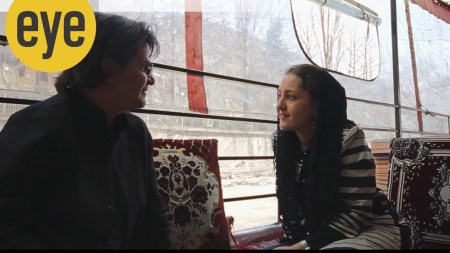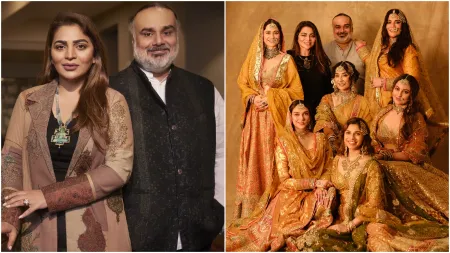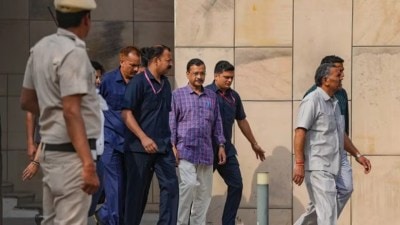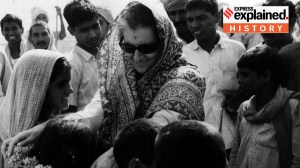- India
- International
Why this tailor-activist from Kerala is in the BBC’s 100 inspiring women list
A tailor-activist holds out hope for unorganised women workers in Kozhikode.
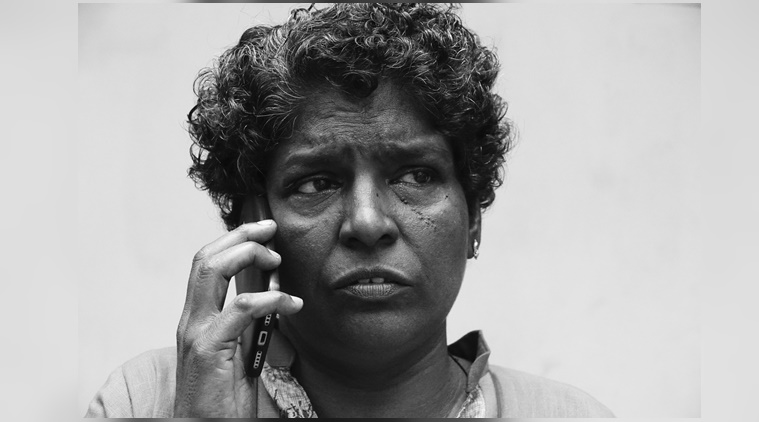 Hall of fame: Viji P
Hall of fame: Viji P
Every morning, Viji Penkoottu, a 51-year-old tailor in Kerala’s coastal city Kozhikode, arrives at her tiny tailoring shop at Sweet Meat Street in the heart of the city for relentless stitching and tailoring. Besides work, it is the travails of women workers in the unorganised sector that weigh heavily on her mind. Going against the male-dominated working-class values of leftist Kerala, Viji has been challenging the old order through her feminist trade unions, which have been agitating for several years to secure the basic rights of unorganised women labourers at workplaces.
Viji, however, is no ordinary tailor-activist. She was selected by the BBC among 100 inspiring and influential women from around the world in November, 2018. But the recognition has made little difference to her routine. She still comes to her shop. “After BBC’s recognition, I am frequently invited to various colleges and schools to attend seminars and give speeches. Many organisations invite me to inaugurate their functions. I am very busy,” says Viji, who is part of the unorganised labour community herself. Do these engagements bring any money? “Illa, valiya valiya upaharangal, ithokke ede konda vekkana? (No, except for big, big mementos. Where will I store them all?),” she says.
Viji has been living with her husband and two children in a small rented house, the fourth since her marriage. After the BBC fame, she has brought home big brass plates, badges and glossy fibre tablets from the events she was invited to. But she has no showcases to exhibit her medals of recognition. “Many people in the city are homeless and I’m just one of them. I’m sure a day will come when everybody will have a home of their own. That day I, too, will get a home,” she says, adding that she’s making the most of the BBC’s validation of her work to highlight the plight of unorganised labourers.
In 1957, 10 years after Independence, communists were voted to power in Kerala. They brought in sweeping land reforms and revolutionary policies in education and public health. They also made labour-friendly policies in different sectors of industry and farm land. But gender was not an important agenda in any leftist discourse of that age. Equal wages or equal treatment for women and men at workplaces never became priorities for the proletarian government.
But the predicament of women at workplaces weighed heavily on the community that was informed by leftist ideology. Even 60 years after Independence, women employed in textile showrooms of Kerala were denied permission to sit at their workplace. They were not offered a chair in the shops to rest at intervals. More shockingly, they were not allowed to use washrooms. They were compelled to stand for the 8-12 hours they spent at the showroom. They avoided drinking water during the day because toilets were unavailable or inaccessible. These women could not retire peacefully either — a majority of them left their vocation with a variety of ailments, forcing them to spend the rest of their lives standing in queues for appointments with doctors in government hospitals.

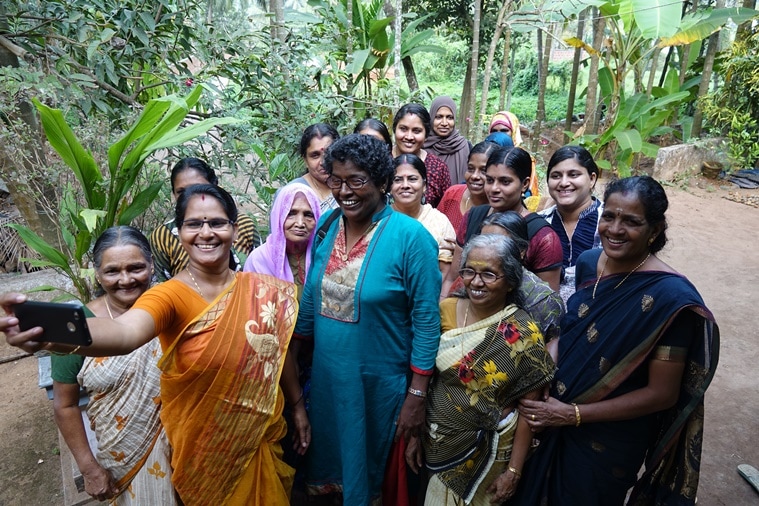 Viji P. with her admirers in Kozhikode. (Photo: Kamalram Sajeev)
Viji P. with her admirers in Kozhikode. (Photo: Kamalram Sajeev)
It was this sorry state of affairs that compelled Viji to launch a two-pronged agitation to secure the basic rights of unorganised women labourers. The first one was Moothrappura Samaram, struggle for toilets. It was followed by Irikkal Samaram, the struggle to sit. Viji and her comrades launched a new platform named Penkoottu (women’s collective) in 2009. This group was already working for women’s rights with Anweshi, a feminist collective founded by Kerala’s celebrated Naxalite leader, K Ajitha.
Viji’s advocacy of unorganised labourers with Penkoottu in the trade union domain gradually made inroads. Kerala, a state with highly organised trade unionism, had hitherto been reluctant to take up the cause of these women. After five years of futile struggle, Penkoottu launched a trade union for the unorganised workers — Asamghatitha Mekhala Thozhilali Union (AMTU).
Finally, most shops and showrooms throughout Kerala were forced to allow sitting facilities and toilets for local women. But a government statute was essential for the continuity of the new order. It took another decade of agitation by AMTU and Penkoottu for the Left Front government in Kerala to amend the Shops and Commercial Establishments Act (1960), to make it mandatory for shops to have lavatories and sitting facilities in 2018.
“Unorganised working women are never included in the mainstream. So, their demands are also sidelined. If we do not raise our demands loudly, these working women would continue to go home as sufferers and patients,” says Viji.
After winning the first two agitations — struggle for toilets and struggle to sit — Viji remains committed to finding solutions for unsolved problems, for example, disparity in wages. “For women in the unorganised sector, wages are determined by assessing their performance. This is an area of big exploitation. Male employees are treated as part of the mainstream. Hundreds speak for them. This value system of male hegemony should be questioned,” she says.
AMTU and Penkoottu are now going to concentrate more and more on “organic issues” of women labourers. Viji is very confident about her innovative trade unionism. “At the same time, we are conscious about the new owners and their strategies since agencies of capital are present everywhere,” says Viji.
Kamalram Sajeev is a Kozhikode-based writer and editor.
This article appeared in print with the headline ‘A Life Less Ordinary’
Buzzing Now
May 03: Latest News
- 01
- 02
- 03
- 04
- 05







